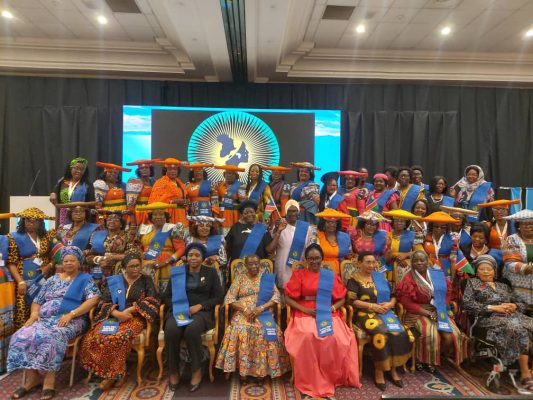The African Widows Summit (TAWS) has reiterated its commitment to mainstream widows’ rights into Africa’s development agenda. The summit, held in Namibia, themed “Widowhood in Africa: Building a Sustainable Culture” and hosted by the Pan-African Widows Growth and Development Initiative (PAWGADI), drew more than 400 delegates, including African First Ladies, ministers, traditional leaders, academics, civil society actors, and widows.
Namibian President, Dr. Netumbo Nandi-Ndaitwah served as patron of the event, which participants described as a decisive shift from dialogue to action.
President, Union of African Widows, Hope Nwakwesi, in a keynote address said, “Nothing About Us Without Us. Widowhood is not charity; it is justice and human rights.”
The summit built on the inaugural Zanzibar 2024 meeting, which first placed widowhood on Africa’s political map, and marked the launch of PAWGADI as the continent’s first dedicated mechanism for widows’ inclusion.
Countries showcased concrete steps to protect widows. Tanzania unveiled Africa’s first National Guideline for Coordination of Widow Interventions and highlighted reforms in land ownership and legal aid campaigns. Nigeria presented its Renewed Hope Social Impact Programmes, aimed at reaching 15 million widows with health insurance, agricultural support, and digital literacy. Host nation Namibia pledged to integrate widowhood into gender and social protection frameworks, describing the decision to host TAWS 2025 as a political commitment.
Grassroots voices underscored the daily struggles of widows. Leaders from Burundi, Nigeria, Uganda, and Kenya recounted experiences of poverty, disinheritance, and harmful traditional practices, while stressing the importance of legal literacy, microcredit schemes, and community-driven solutions. Civil society actors introduced innovations such as simplified widowhood laws in plain and Pidgin English to improve access to justice.
Experts and health advocates pressed for systemic reforms, with calls for widow-led advisory councils at all governance levels and for widows’ inclusion in national health insurance schemes, particularly for those living with HIV.
President of the Medical Women’s International Association, Dr. Eleanor Nwadinobi, urged governments and the private sector to make healthcare accessible and affordable.
The global dimension was reinforced by Founder of the Loomba Foundation, Lord Raj Loomba, who praised Africa for spearheading widowhood advocacy and reminded delegates that the plight of widows was a universal human rights concern.
The summit culminated in the adoption of the African Widows Inclusion Framework, which urges governments to integrate widowhood into Agenda 2063, enforce protective laws, and establish widow-led advisory councils. It calls on donors to fund widow-specific programmes and on communities to challenge stigma and end harmful practices.
Delegates endorsed a clear implementation plan, beginning with the consolidation of PAWGADI and the creation of advisory councils within six months, the drafting of model legislation within a year, and longer-term reforms across the African Union and national governments within five years.



